#no but the way Disney showed NOTHING that could compete with Epic universe
Text
Shout Out to Poseidon Entertainment
Disney World Orlando's #1 hater:
youtube
I don't feel like gathering more videos for evidence
#poseidon entertainment#no but the way Disney showed NOTHING that could compete with Epic universe#like universal not only has HP but NINTENDO to use as IPs#that's even more money they could steal#disney world#theme parks#orlando#disney could compete by adding sega attractions#fucking add Atlus idk#give me a Catherine Duel coaster#Youtube
0 notes
Text
Adapting to Adaptations
Some people say this is the golden age of television. Netflix Hulu and Amazon are developing their own original series to much critical acclaim and much of what spring-boarded them into success was adapting pre-existing works from other formats. House of Cards, Orange is the New Black, and Hemlock Grove, some of Netflix’s earlier and more successful series were all based on books, and more and more cable networks are optioning scripted series to compete with streaming services and the likes of HBO and Showtime. Others say that we’re in an endless age of recycling the same thing over and over. That the lack of originality is killing more creative works by sucking all the oxygen out of the room. When Disney, a company already astute at milking series for all they were worth, acquired the mega-franchises of Marvel Comics and Star-Wars, they guaranteed that both creative universes would live forever. This is great news for the fans, who can now look forward to reboot after reboot of their favorite stories, but when theaters have to compete for every hard-earned dollar an increasingly selective audience will spend at the box office, rehashing the same blockbusters repeatedly means that other, more esoteric movies will not even be shown. Despite the challenges these trends present for new writers, I feel that overall, the proliferation of adaptations and the fragmentation of the media market are good for creators.
Let me explain why.
When I was growing up, three media franchises had a profound effect on me. Looking back on them now, I realize they each had their own unique gifts to give me, not only as a consumer of stories but as a student of storytelling.
FRANCHISE 1: Pokémon - Video Games and World Building serve as a springboard for fiction.
Featuring a video game world of lavish detail and intricate mechanics for its time, the Pokémon franchise was created by a game journalist named Satoshi Tajiri as a passion project. Pokémon has turned into one of the most successful video game and media franchises in the world.
The concept of the games is simple, Tajiri wanted to capture the spirit of insect collecting that he had enjoyed as a child, but with a fantasy angle. In the game, children go on quests to capture and train “pocket monsters.” Elemental beasts that inhabit the world instead of wild animals. Pokémon trainers can trade their Pokémon with each other or pit them against one another in (kid friendly) gladiatorial battles. The battles are turn-based and much of the strategy, like in other RPGs requires you to play to the monsters’ strength or weakness types and stats. For example, Fire beats Grass, etc.
My first experience with Pokémon though was not the video games, but with the Trading Card Game, which brought the idea of strategic collecting and battling to the real world. I became interested in the show and games shortly after that, but if it weren’t for adaptation of the Pokémon games into other media, my experience would have been different.
The exploration of the created system inspires the player to imbue the tasks they undertake with added meaning or drama. Building on the fundamental plot of the video games, the player enhances the addictive gameplay with personal meaning. Fans of the series, loving the world, creatures and concepts Tajiri created, went on to adapt the world of Pokemon into Manga (comics), Anime (animated TV series), Feature Animated Films, a Wildly popular Trading Card Game. The scaffolding provided by Tajiri provides the basis for players, myself included, to attach their own epic quests to the repetitive strategic tasks of the gameplay. The video game mechanics lend themselves to replay value and inspire storytelling through other media, in the same fictional world.
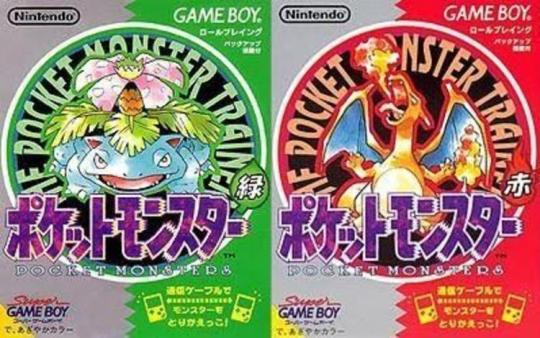
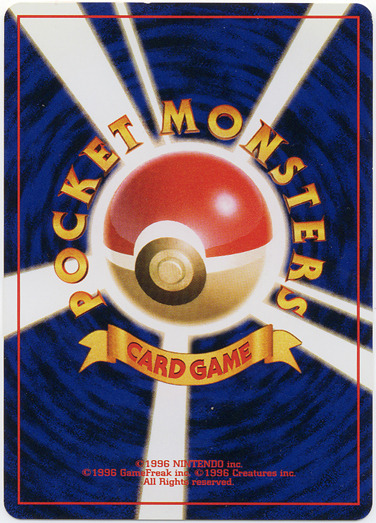
FRANCHISE 2: Harry Potter - Addictively good fiction leads to empire building franchises; If you tell a good story, they will come.
I don’t need to tell you what Harry Potter is, or how huge a phenomenon it is. Really, Harry Potter and Pokémon need little to no introduction. Still, the fictional world of Harry Potter is compelling on multiple levels. It’s compelling because it follows the typical hero’s journey in a unique and more modern way, drawing on other classic fantasy works already in the collective cultural deposits and making them accessible to everyone. It’s compelling because author J.K. Rowling’s world-building is as in-depth as Tajiri's, allowing fans to immerse themselves in her created space and stake out their own nooks to explore through fanfiction, and cross-media adaptation. Third, the story of Harry Potter is compelling because, in many ways, it mirrors the journey of its creator. Harry Potter is a rags-to-riches, coming-of-age story about a young boy who rises out of a lowly situation to become famous and beloved. Similar to the eponymous hero, J.K. Rowling brought the story of Harry Potter to life as a struggling single mother who was rejected by multiple publishing houses, only to turn it into one of, if not THE most successful book series in the world. The smash success of the books spawned adaptations to film, video games and various additional merchandise, such as board games, clothes and toys inspired by the “Wizarding World.”
Rowling’s modern-fantasy reimagining of the Hero’s Journey has captured the imaginations of millions. Like Pokémon, Harry Potter is an excellent example of world building. Unlike Pokémon, the mechanical structure of media like video games was not the main driver of its success but contributed to that success and was further built upon as created works proliferated, inspired by the excellent fiction writing skills of J.K. Rowling.
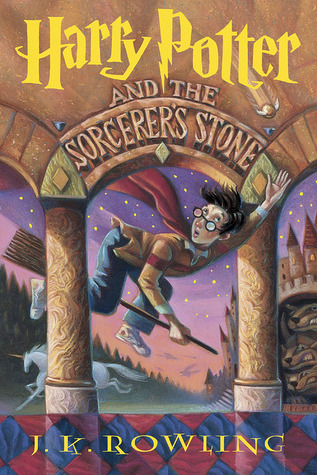
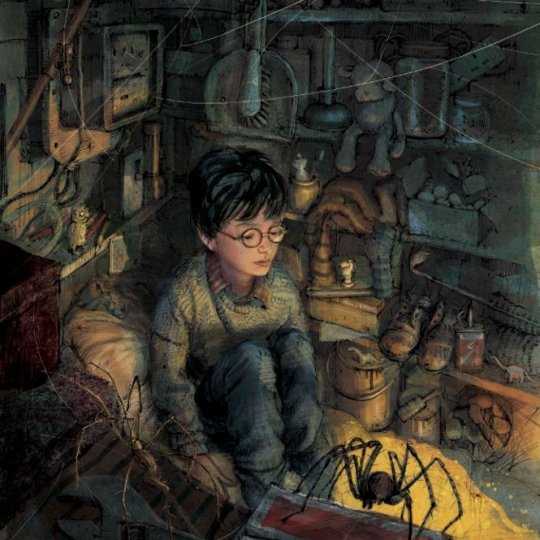
FRANCHISE 3: Middle Earth – World building at an unparalleled level, coupled with excellent fiction writing and adaptation skills, leads to the creation of a classic.
J.R.R. Tolkien’s story-universe Middle Earth, the setting of famous The Hobbit and The Lord of the Rings tales as well as many other stories is one of my most beloved worlds to explore. I first encountered Middle-Earth because of adaptation. I was first introduced to The Hobbit through a radio dramatization of the book. After that, I read the novel and later, The Lord of the Rings. I listened to the audiobooks, watched and own all of the movies, and have played several of the video games. The video games that I felt were the worthiest contributions to the franchise were the ones that were either direct adaptations of the source material or entirely new works based on the same world. In recent news, Amazon will be creating a new series based on the world of Middle Earth.
Tolkien’s world-building has inspired many. Aside from the various adaptations mentioned already, it is also credited as the inspiration of the popular tabletop RPG Dungeons & Dragons, not to mention the countless “high-fantasy” or “sword and sorcery” titles that have followed and owe it a debt. Tolkien did not create The Lord of the Rings in a vacuum, however; he borrowed heavily from Anglo-Saxon mythology, Norse Mythology, and Judeo-Christian Mythology. Interpreting and compiling them with his love of languages, Tolkien labored to create his own languages and build the world and peoples that would have created them. The point is, that Tolkien himself was an “adapter,” in fact, he translated one of the versions of Beowulf that we have today. Tolkien’s adaptations spawned other adaptations of his work and inspired many others. The reason his works are so beloved and of such high quality is because of his fantastic world-building abilities, his ability to spin a tale, and his own skills at riffing on the cultural heritage available to him. This combination ensures stories that a wide audience can engage and explore.
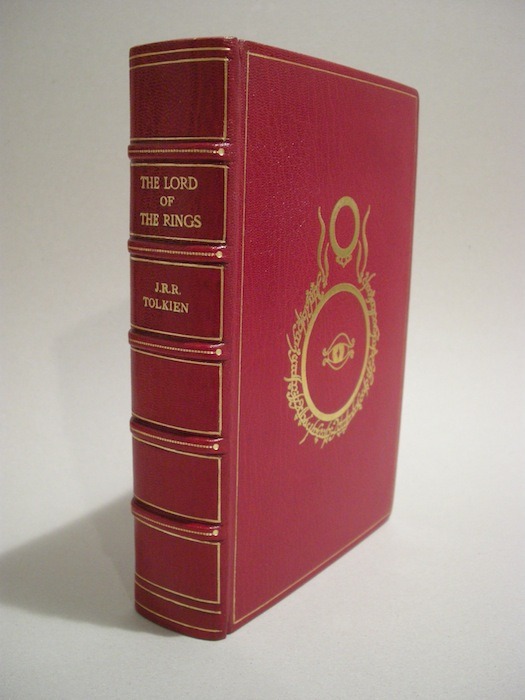
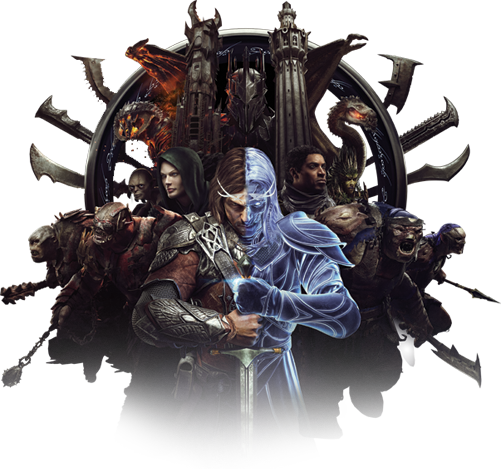
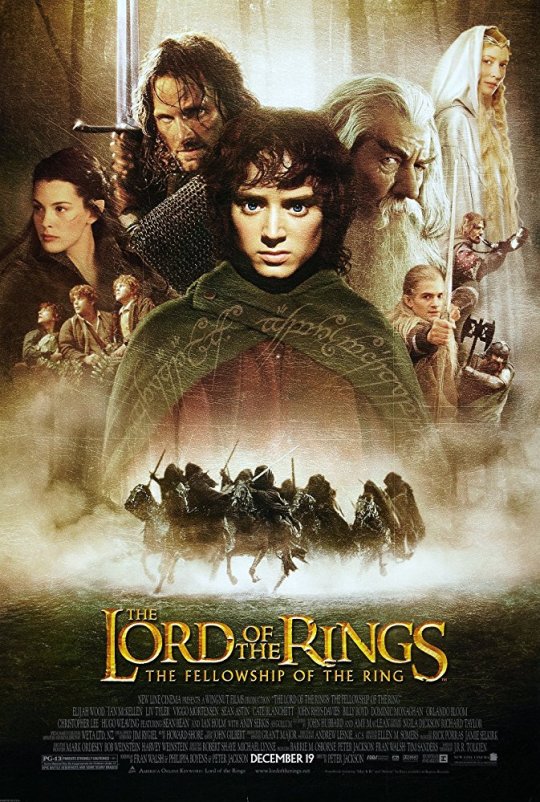
The idea that this increase in rebooting or adapting of existing works is a new problem, or even a problem at all, is a fallacy. There is “nothing new under the sun,” as the saying goes. The increased reimagining of work is to be welcomed. It provides an opportunity for new creators to flex their muscles while paying tribute to the works they admire. It could be a problem if, as stated previously, adaptations were all that was being created at the expense of all other content. Fortunately, though, the media market is shifting, and there are now more ways than ever to produce and publish content. So, let the major production companies rehash the stories that we already know and love. They have money to do it right and to do them justice. The rise of new streaming services and original television or web-series programming empowers creators to produce their own original works and expose them to the public eye in due time. I, for one, am glad to be along for the ride.
1 note
·
View note
Text
Opinions Like Kittens: The End Of Thrones
By Grant Johnson
All roads reach their terminus.
It sucks that it’s over, but alas, all good things must come to an end. True that may be, but it’s still difficult to swallow, because reaching the end of any journey is bittersweet. You left home, and ended up somewhere else, the new place may be exciting, but it isn’t home.
Naturally, the Game of Thrones conclusion was met with the inevitable backlash, and it was inevitable. People are almost always dissatisfied with the ending of TV shows. Sure, there are exceptions, for every Breaking Bad, Veep, and Justified, there is LOST, Dexter, and How I Met Your Mother (I’ll also throw in the entire second season of True Detective, because people destested that also). Now the latest finale on the chopping block is Game of Thrones. Sure, not all finales are handled with as deft a touch as Six Feet Under or Avengers: Endgame, but I think it has more to do with audiences not wanting any ending, than the ending itself. Maybe some endings get caught under the weight of the audience expectations, maybe it’s just the burden of wanting more, which, to me, means the story is ending exactly where it should. Leave them wanting more.
She was The Mother of Dragons.
Does that mean the Iron Throne should belong to her? As strong and powerful a character as she was, Dany was so caught up in her quest for The Throne, believing it was her birthright, that she never stopped to think why she really wanted it, she only knew her brother wanted it. Compounded by the fact that she never seemed to come to terms with the man her father was, or what he did, or would’ve done (if not for Jaime). That being said, I was still ready to back Dany, even after the burning of King’s Landing. It made sense to me, in a Fight Club sort of way, you have to destroy what was there to build something new. I think she would’ve been a great ruler, but maybe that’s the problem, she was always a conqueror, not a leader. She never quite nailed down the political aspect of the job. She repeatedly wanted to take King’s Landing by fire, and repeatedly, she had to be talked down by Jorah, by Varys, by Tyrion, and by Jon. Not to mention, she never seemed able to separate vengeance from justice. Her hunger for power could never be slaked, that’s even more dangerous when you consider she has the dragons, the equivalent of several atom bombs, at her disposal. Still, I would’ve liked to see Dany recreate the world as she saw fit. There’s a whole other story there (that’s where those few more episodes would’ve come in handy). Ultimately, I think her story is a cautionary tale about the pitfalls of wish fulfillment.
The Boy Who Would Be King.
Jon would’ve been a good King. However, he didn’t want it. If he had worn that crown, where would that lead? Would he have grown weary of it? Apathetic? Mayhaps. The idea of him being forced into the role of King doesn’t feel right. I want more for his character. Because he wanted one simple thing, to go back to that cave with Ygritte. After everything he’s been through, something resembling that end feels right for his journey.
Of Snow and Fire.
Dany and Jon are opposite sides of the same coin. One believed the Iron Throne was her birthright and was willing to take it by any means necessary. The other had the better claim to the Throne, but didn’t want it. Jon was willing to deny his claim for Dany, but Dany would, under no circumstances, reciprocate the gesture for Jon, or for Westeros. Because her entire ego had been built around the idea that she was the rightful heir to the Throne. Once her claim to the Throne was usurped, she completely lost sense of her identity. When everyone is celebrating after prevailing in the Battle of Winterfell, Tormund is applauding Jon for his valor, and for riding a dragon in battle. Dany looks over at Jon, her eyes filled with somber jealousy, and in that moment she becomes her brother, Viserys. Filled with anger for everyone giving Jon the adulation that she believes is owed to her.
Ultimately, no matter how much we should’ve been able to predict the trajectory of some characters, we didn’t, that, above all else, has been my favorite thing about this story. It’s hard to find a story that has been as consistently unpredictable as GoT. I’ll never forget my introduction to the TV series, a friend suggested that I watch the show because, “It has all the things that are great about the fantasy genre, but without the usual tropes.” I was sold from that pitch alone.
I didn’t read the books until somewhere between season 4 & 5, and fell in love with them, and George R. R. Martin’s sublime writing. On the Ink To Film podcast, Luke Elliot and James Bailey covered the first book and season of A Song of Ice and Fire/Game of Thrones (they also did a great postmortem of the show for a Patreon bonus episode). They discussed one of GRRM’s brilliant literary talents, his ability to subvert expectation. Whether it’s the reader’s expectations or the expectations of the characters, Ned will make it out of this, right? It constantly keeps you off-kilter, the moment Ned’s head leaves his body, all bets are off. No one is safe. That moment, that feeling, permeates throughout the series, much to our indignation. This is why I could never compete in the fan theory debates. What do you think will happen? Who do you think will end up on the Iron Throne? I don’t f***ing know. There’s no way I could’ve guessed, and it’s a good thing I didn’t place any wagers on my predictions, because that money would be long gone now. I was prepared for the Night King to eradicate everyone. But, at the end of the day, I’ve been happy to nervously watch it all unfold from the edge of my seat. I’ve appreciated the times the TV show has cranked the story up to 11, for instance, Talisa (AKA Jeyne Westerling) being present at The Red Wedding. In the book she stays back at Riverrun, therefore, she wasn’t present at the massacre. In the books she is still alive and...well, no one in the ASOIAF universe is doing well.
I’m not saying the final season is without its flaws, it certainly has them, no work is perfect. But I think it gave as satisfying an ending as this story would allow. George R. R. Martin has been very vocal about his love for J.R.R. Tolkien and The Lord of the Rings. He’s also stated he wants to emulate the ending of LOTR in Thrones. More specifically, its “bittersweet” ending. Although, even without that knowledge, if we thought Game of Thrones was going to have anything resembling a Disney-style happy ending, then we weren’t paying attention. Like Tyrion speaking of the corruption in King’s Landing, “If you’re looking for justice, you’ve come to the wrong place.”
There are still aspects that irk me, like Jaime pulling a full 180 (or a 360, depending on how you look at it), but I think Jaime is a self-punishing character, he doesn’t believe he deserves redemption, so he set about making sure to deny himself that redemption by returning to Cersei. The show runners could’ve given everything more time to breathe. Maybe they should’ve done a ten-episode season, especially since the writers wanted to pack so much into the season. Who knows, maybe if they had done a full ten, we’d all be sitting here talking about those four episodes where nothing happened. However, I think at least two more episodes of watching Dany unraveling, being a complete dictator would’ve solidified the arc. Some thought the Night King battle was pushed too far forward in the season, that he should be a final boss. The problem with that is, after dealing with the Night King, no matter what, the living still have to deal with each other. That being said, the final season did give us one of the most satisfying episodes (A Knight of the Seven Kingdoms), and arguably the most epic (The Long Night). Sure, the season felt rushed, but that’s because we didn’t want it to end.
All of this makes me more eager for GRRM to finish the books. I’m curious to see how he closes it out. So let’s all wish him good health. I’ll be very surprised if the books end like the TV show, but hopefully we will find out.
Ultimately, If you didn’t like the final season, I get that, we all have our issues with it, it’s part of being a fan. We all think it should’ve ended this way or that way. It doesn’t mean the way it ended was wrong, just different from what we expected. Was the second season of True Detective bad, or did we just want more Matt McConaughey and Woody Harrelson? Time will tell. I think the second season was fantastic and in some ways superior to the first. When Sopranos ended, its finale was met with venomous contempt. Now, more than a decade later, it’s revered as one of the best finales. One of the finales that “got it right.” Maybe, after the dust settles, the Thrones finale will be re-examined, and maybe the public will feel different about it. Just don’t let the ending mar the story as a whole, because, “A good act does not wash out the bad, nor a bad act the good.”
0 notes